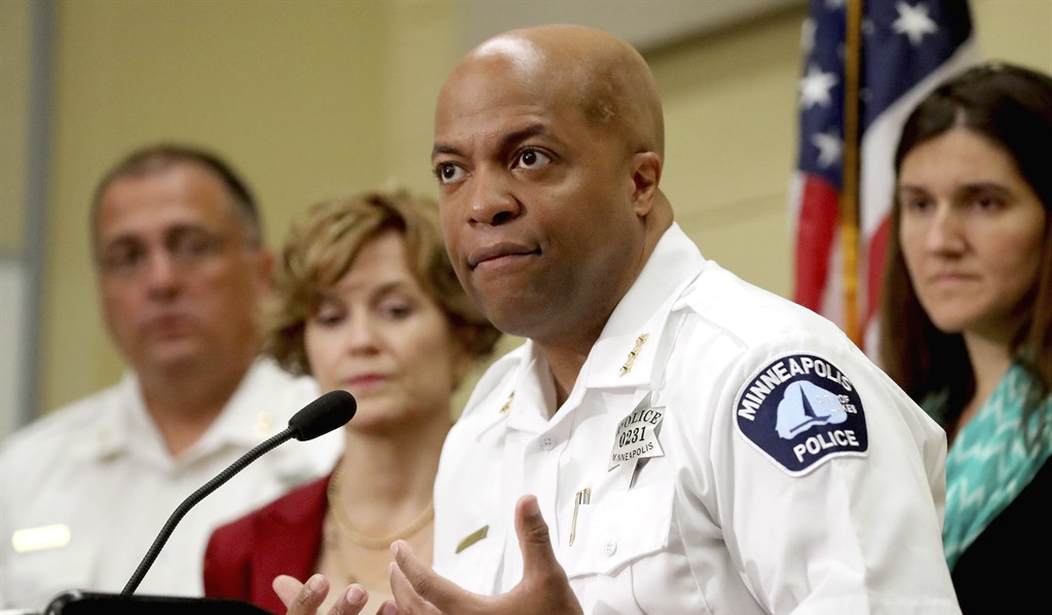Minneapolis Police Chief Medaria Arradondo testified at former police officer Derek Chauvin’s trial on Monday. While giving his testimony, he stated that Chauvin violated policy and training during his encounter with George Floyd.
The police chief stated that Chauvin should have removed his knee from Floyd’s neck “once there was no longer any resistance.”
“Clearly, when Mr. Floyd was no longer responsive, and even motionless, to continue to apply that level of force to a person, prone, handcuffed behind their back, that in no way shape or form is anything that is by policy, is not part of our training, and it is certainly not part of our ethics,” Arradondo said on the stand.
The police chief added: “Once Mr. Floyd had stopped resisting and certainly once he was in distress and verbalized that, that should’ve stopped.”
During his testimony, Arradondo also indicated that the police department provides officers with a number of different guidelines regarding their conduct during encounters with suspects. He stated that the officers’ training includes de-escalation techniques and defensive tactics to avoid fatal encounters. However, Chauvin did not follow any of those procedures during the incident with Floyd.
“Of all the things that we do as peace officers for the Minneapolis Police Department,” the police chief remarked, “it is my firm belief that the one singular incident we will be judge forever on will be our use of force.”
“And while it is absolutely imperative that our officers go home at the end of their shift, we want to ensure that our community members go home too,” he continued.
Arradondo also explained that officers receive “guidance” detailing how civilians have the right to film them during encounters with suspects. In the case of George Floyd, several civilians filmed the arrest and subsequent death with their cell phone cameras. Much of the footage that was filmed was shown to the jury.
Lt. Richard Zimmerman, the department’s highest-ranking homicide detective, told the court that Chauvin’s actions on that day were “totally unnecessary.”
On Thursday, retired Sgt. David Pleogar, like Arradondo, said that Chauvin should have removed his knee from Floyd’s neck after it was apparent that he “was no longer offering resistance.”
The testimonies from police officers and bystanders will be an essential part of the case. But medical evidence will also play a crucial role. Chauvin’s defense attorneys argue that Floyd’s drug use and underlying health conditions caused his death. However, the Hennepin County Medical Examiner’s office ruled his death a homicide.
Courtney Ross, Floyd’s girlfriend, testified last week and told the court that they both struggled with drug addiction. “Floyd and I both suffered with an opioid addiction,” Ross said.
“Both Floyd and I, it’s a classic story of how many people get addicted to opioids,” she explained. “We both suffered from chronic pain. Mine was in my neck and his was in his back.”
Derek Chauvin faces charges of second-degree murder, third-degree murder, and second-degree manslaughter. The other three officers present at the scene of Floyd’s death are scheduled to stand trial in August for charges of aiding and abetting second-degree murder and manslaughter.













Join the conversation as a VIP Member